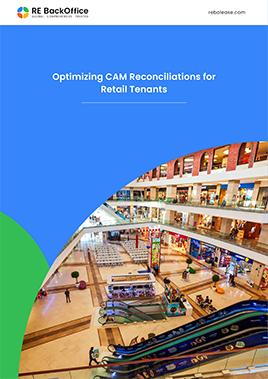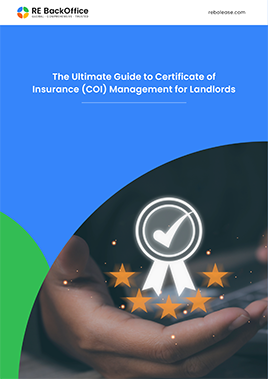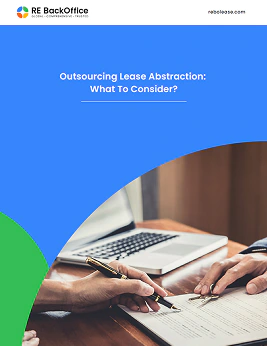
Lease administration is a critical aspect of real estate management that involves the meticulous handling of lease agreements and their associated responsibilities. It encompasses various activities such as tracking lease terms, managing lease renewals, ensuring compliance with lease clauses, and handling rent payments and other financial transactions. Effective lease administration can significantly impact the financial health and operational efficiency of any organization with a substantial real estate portfolio. This article delves into the intricacies of lease administration, its importance, key components, and the benefits of outsourcing lease administration to a trusted lease administration service provider.
The Importance of Lease Administration
Lease administration serves as the backbone of property management, ensuring that all lease-related activities are performed accurately and timely. The importance of lease administration can be summarized through the following points:
Compliance and Risk Management:
Proper lease administration helps organizations stay compliant with lease terms and legal requirements, reducing the risk of disputes and penalties. Non-compliance with lease agreements can result in financial losses, legal battles, and damage to the organization's reputation. By maintaining a rigorous lease administration process, companies can ensure that all terms are adhered to, thus mitigating potential risks.
Financial Accuracy:
It ensures accurate tracking of rent payments, lease escalations, and other financial obligations, thereby maintaining financial integrity. Mismanagement of lease payments or overlooking lease escalations can lead to significant financial discrepancies. Effective lease administration ensures that all financial aspects are meticulously tracked and recorded, supporting accurate financial reporting and budgeting.
Operational Efficiency:
Efficient lease administration streamlines processes, reducing administrative burdens and allowing property managers to focus on strategic initiatives. By automating routine tasks and maintaining organized records, lease administration enhances overall operational efficiency and frees up resources for more critical tasks.
Data Management:
It provides a centralized repository of lease information, facilitating easy access to critical data for decision-making and reporting. With all lease information stored in a centralized system, organizations can quickly retrieve data, generate reports, and make informed decisions based on comprehensive and up-to-date information.
Key Components of Lease Administration
Lease Abstraction
Lease abstraction involves summarizing lease agreements into concise, easily understandable formats. This process captures essential details such as lease terms, renewal options, rent escalations, and critical dates. A well-prepared lease abstract serves as a quick reference guide, ensuring that all stakeholders are aware of their rights and obligations. Accurate lease abstracts can prevent misinterpretations and ensure that all parties are on the same page regarding lease terms.
Rent Management
Rent management is a fundamental aspect of lease administration. It includes tracking rent payments, calculating rent increases based on lease terms, and ensuring timely collection of rents. Effective rent management ensures a steady cash flow and minimizes the risk of arrears. Proper rent management also involves resolving any discrepancies in rent payments promptly, maintaining clear communication with tenants, and adjusting rent according to the lease agreement terms.
Critical Date Management
Managing critical dates such as lease expirations, renewal options, and rent review dates is crucial. Missing a critical date can lead to significant financial losses or missed opportunities. lease administration systems often include alerts and reminders to help property managers stay on top of these important dates. For instance, timely reminders for lease renewals can ensure that negotiations are initiated well in advance, preventing unplanned vacancies or unfavorable lease terms.
Document Management
Document management involves the organized storage and retrieval of lease documents, amendments, correspondence, and other related paperwork. A robust document management system ensures that all lease-related documents are easily accessible and secure. This system allows for quick retrieval of documents during audits, legal reviews, or strategic planning sessions. Additionally, it helps maintain version control and ensures that the most up-to-date documents are always available.
Compliance Monitoring
Lease administration includes monitoring compliance with lease terms and legal regulations. This involves regular audits, inspections, and ensuring that all parties adhere to the agreed-upon terms. Compliance monitoring helps mitigate risks and avoid potential legal issues. By conducting periodic reviews and ensuring adherence to lease clauses, organizations can avoid costly disputes and maintain a good relationship with tenants.
Benefits of Outsourcing Lease Administration
Outsourcing lease administration to a trusted lease administration service provider offers several advantages:
Cost Savings
Outsourcing lease administration can lead to significant cost savings. By leveraging the expertise of a specialized service provider, organizations can reduce overhead costs associated with hiring and training in-house staff. Additionally, outsourcing eliminates the need for investing in expensive lease management software and infrastructure. Service providers often have economies of scale, allowing them to offer competitive pricing while maintaining high service quality.
Access to Expertise
A trusted lease administration service provider brings specialized knowledge and experience to the table. They are well-versed in the complexities of lease management and can provide valuable insights and best practices. Their expertise ensures that lease agreements are managed efficiently, reducing the likelihood of errors and ensuring compliance with legal and contractual obligations.
Scalability
Outsourcing lease administration allows organizations to scale their operations efficiently. Whether managing a small portfolio or a large one, a service provider can adjust their resources to meet the changing needs of the organization. This flexibility is particularly beneficial for organizations experiencing growth or fluctuations in their real estate holdings.
Technology and Tools
Lease administration service providers typically use advanced technology and tools to manage leases effectively. These tools offer features like automated reminders, data analytics, and reporting capabilities, enhancing overall efficiency. Advanced lease management software can streamline processes, reduce manual errors, and provide real-time insights into lease performance.
Focus on Core Business
By outsourcing lease administration, organizations can focus on their core business activities. This allows property managers and executives to concentrate on strategic initiatives rather than getting bogged down in administrative tasks. Outsourcing lease administration frees up internal resources, enabling organizations to allocate more time and energy to growth and development.
How to Choose a Lease Administration Service Provider
Selecting the right lease administration service provider is crucial for maximizing the benefits of outsourcing. Here are some factors to consider:
Experience and Reputation
Look for a service provider with a proven track record and positive reputation in the industry. Experience in managing similar portfolios can be a significant advantage. Check for client testimonials, case studies, and industry recognition to gauge their reliability and expertise.
Technology and Systems
Ensure that the service provider uses state-of-the-art technology and systems for lease administration. This includes robust lease management software and secure document management systems. The right technology can enhance efficiency, accuracy, and data security, providing a seamless lease administration experience.
Customization and Flexibility
Choose a service provider that offers customizable solutions tailored to your specific needs. Flexibility in their approach can help ensure that they can adapt to your unique requirements. A one-size-fits-all approach may not be suitable for all organizations, so it is important to find a provider that can tailor their services to your needs.
Compliance and Security
Verify that the service provider adheres to industry standards and legal regulations. They should have robust security measures in place to protect sensitive lease information. Ensuring data privacy and compliance with relevant regulations is crucial in maintaining the integrity and security of your lease data.
Customer Support
Good customer support is essential for a successful outsourcing partnership. Ensure that the service provider offers responsive and reliable support to address any issues or concerns promptly. Effective communication and support can make a significant difference in the overall experience and success of the outsourcing arrangement.
The Future of Lease Administration
The field of lease administration is continually evolving, driven by technological advancements and changing market dynamics. Here are some trends shaping the future of lease administration:
Automation and AI
Automation and artificial intelligence (AI) are transforming lease administration by streamlining processes, reducing manual intervention, and enhancing efficiency. AI-powered tools can analyze lease documents, extract critical information, predict trends and anomalies, and automate routine tasks, allowing administrators to focus on strategic activities like portfolio optimization and tenant relationship management. These technologies lead to significant cost savings by minimizing errors, reducing manual labor, and ensuring timely compliance with lease terms to avoid financial penalties and disputes. Additionally, AI-powered analytics provide deeper insights into lease portfolios, supporting enhanced decision-making with accurate data and predictive trends. Automation ensures that lease-related activities adhere to set rules and schedules, improving compliance and reducing risks, while AI tools monitor for compliance issues, ensuring effective and efficient lease management.
Lease administration is a vital component of effective real estate management. It encompasses a range of activities aimed at ensuring compliance, financial accuracy, and operational efficiency. By outsourcing lease administration to a trusted lease administration service provider, organizations can reap numerous benefits, including cost savings, access to expertise, and enhanced scalability. As the field continues to evolve, embracing technological advancements and focusing on sustainability will be key to staying ahead in the competitive real estate market.
Effective lease administration not only safeguards an organization's interests but also contributes to its overall success by optimizing lease management processes and enabling informed decision-making. Whether managed in-house or outsourced, prioritizing lease administration is essential for any organization with a significant real estate footprint.


